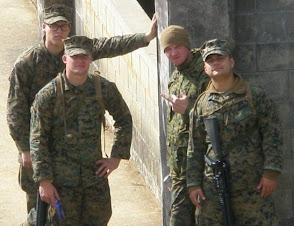REVIEW: 'INTO THE STORM', HBO’S SPECIAL PRESENTATION ON WINSTON CHURCHILL
DURING THE WAR YEARS
Winston Churchill is one of those iconic figures in the history of the Anglo-sphere around whom as many legends swirl, as facts. Soldier, journalist, politician, imperialist, husband, prolific writer, father, drunk, arrogant upper-class bully, and savior of Great Britain in its darkest hour: he was, at least to some degree, all of these things. But which of these well-known, popular descriptions should the modern observer attach to this complex, multi-faceted man when viewing him within the context of his own extraordinary time? This is always the challenge when any story teller attempts to examine the life and accomplishments of Sir Winston Churchill. Thus, it is no surprise that it can be very difficult for a contemporary film maker to accurately, and fairly, separate the myth from the man. In the HBO production, “Into the Storm,” Irish film director Thaddeus O’Sullivan offers his own surprisingly sympathetic — Winnie is not the hero in Ireland that he is in England — view of Churchill as the British War Time Leader. And while “Into the Storm” certainly could have been a lot better, it could also have been a great deal worse.
The cast, with one exception, is excellent. Brendan Gleeson is a realistic and convincing Churchill who does not try so hard with the famous war-time speeches or the well-known mannerisms that he becomes a caricature of his famous subject. Appearance-wise, the actor has very little in common with Churchill, other than pure bulk, but he still manages to convey a sense of the man and his physical presence. Janet McTeer, who plays Churchill’s wife “Clemmie,” also does an excellent job. Hers is a difficult role. She must both convey Clementine’s place as the emotional center in the Churchill family’s day-to-day life, and also show the strain of her marriage to a man who was certainly great in intellect and accomplishment, but who was often also a petulant child in his dealings with those in his immediate circle. My one and only disappointment in the cast, is with the actor who plays Roosevelt. And to be fair, this may be more a problem with the writing than with the actor. Frankly, the Roosevelt in this film doesn’t come across as the shrewd and ruthless political operator that history has revealed him to be. Even more importantly, the actor simply doesn’t convey the physical and mental toll that the war actually took on the American President. The Roosevelt in this film never really looks either infirm or in failing health, even at the end.
The set designs and production values of this piece are also excellent. Without resorting to a lot of exterior mock-ups or CGI graphics, the film gives a nice feeling for wartime England. Even the “Battle of Britain” footage is nicely balanced between the ordinary staging of the interaction between Churchill and a group of RAF pilots, and some brief CGI graphics footage of the aerial battles in the skies over London. Moreover, the set designs, whether at “Chartwell” or at “10 Downing Street” are unobtrusive enough to allow the story to remain focused on the central narrative.
The one real disappointment with this HBO project is with its length. This was a BBC Production that covered the entire period of World War II, from England’s reluctant entry in 1939, to Germany’s unconditional surrender in 1945; and beyond to the British post-war Parliamentary Elections that finally nudged Churchill from power. Yet “Into the Storm” runs for only 135 minutes. This inevitably leads to incomprehensible gaps in the film’s cast of important characters and to the logical coherence of its historical narrative. General Eisenhower, although a critical collaborator for much of the later part of the war with the prime Minister, makes no appearance whatsoever; and important historical events, such as Roosevelt’s death or the explosion of the atomic bombs in Japan, are not even mentioned. Given the extraordinary richness of the film’s characters and subject matter, these omissions are down right annoying; particularly when the same BBC that produced this program regularly translates two-hundred page detective novels into four or five hours of film.
In the end, I have to say that despite my several criticisms, “Into the Storm” is still worth an hour and a half of the viewers’ time. One can only hope that at some point, the BBC or somebody else will finally produce a serious and appropriately long dramatic series on this historical period; I know that I would certainly welcome it.
For an excellent BBC series on Churchill between the wars, see "Churchill: The Wilderness Years" starring Robert Hardy.









0 comments:
Post a Comment